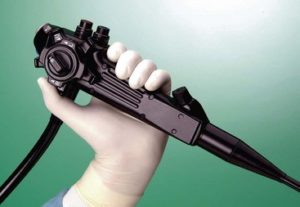 One of the biggest risks of using flexible endoscopes in healthcare stems from the reusable nature of the expensive instruments. Though the risk of passing disease on through endoscopes is relatively low, the danger is always there even when following the instructions for use provided by the manufacturers. The high-level disinfection process for medical endoscopes can still leave some residual bacteria as shown by several recent studies.
One of the biggest risks of using flexible endoscopes in healthcare stems from the reusable nature of the expensive instruments. Though the risk of passing disease on through endoscopes is relatively low, the danger is always there even when following the instructions for use provided by the manufacturers. The high-level disinfection process for medical endoscopes can still leave some residual bacteria as shown by several recent studies.
Adding to this complication is that there is a lot of time that passes between when endoscopes are high level disinfected and when they are used on patients. During this time, several humans may come into contact with disinfected scopes during normal business operations. Runners transport scopes from sterile processing to the storage areas, techs scan endoscopes in and out of clean storage and nurses pull endoscopes for upcoming procedures and transport them to the lab.
Any human contact with endoscopes increases the possibility of transmission of disease. While many points of contact with endoscopes are unpreventable, healthcare providers must attempt to eliminate physical contact with endoscopes whenever possible to maintain the highest levels of patient safety. One of the easiest places to eliminate human contact with endoscopes relates to the way most hospitals and outpatient centers track scope hang-time limits. Most hospitals approach this challenge by applying paper tags to scopes that list the last date of high-level disinfection for each scope and/or the expiration date for the scope. If endoscopes are checked daily for these expiration dates, each scope may be touched 7 to 30 additional times by an employee (depending on the hang-time limit set by the hospital) before the next use on a patient.
However, there is a way to eliminate these unnecessary touches by using automation technologies. iRIScope from Mobile Aspects was introduced in the last several years to take manual documentation for endoscope management and turn it into electronic records. Using RFID technology, you can now literally have your scopes alert you when they need to be re-washed (and get rid of those pesky paper tags).
The way RFID technology helps automate endoscope management is both simple and highly effective. Attaching medical-grade RFID tags to your endoscopes allows each scope to be tracked electronically as it goes through the HLD process. Because you now have an electronic time stamp of each scope’s most recent wash stored in a database, intelligent analytics built into iRIScope smart cabinets will push endoscope re-wash alerts right to your inbox.
No more log books, no more paper tags – just electronic documentation that makes your department more effective and more efficient. Patient safety and accreditation likelihood will improve because your disinfected scopes are less prone to contamination. All the time staff spends looking at paper tags to see which scopes need to be washed can be turned into time spent on patient care. And all potential for human error in miscalculating the re-wash limits can be eliminated.
